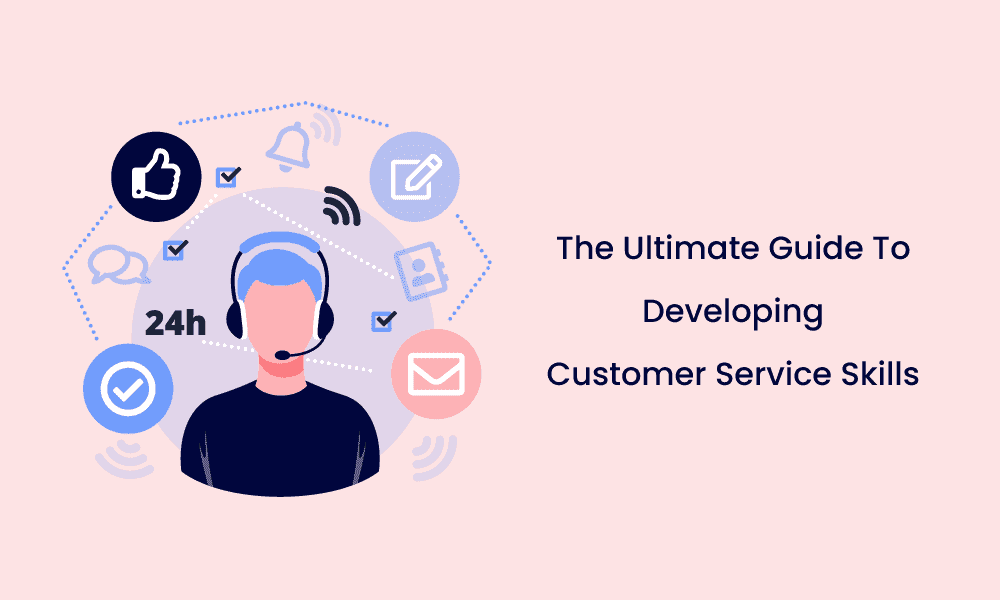For any business, the differentiating factor between success and failure is the level of customer service that it offers.
Customer service skills are often overlooked because business owners focus all their energy on building a good product. However, no matter how good your product is, if you can’t retain happy customers, the business won’t grow.
Our reason to write this blog post isn’t to inform you that customer service is important — we all know that customers are the lifeblood of every business — it’s to help you prioritize it.
Good customer service plays a crucial role in shaping the customer’s expectations with your company. Today’s empowered customers are not afraid to jump ship if they have an unsatisfactory customer service experience with your business.
On the other hand, happy customers lead to more word-of-mouth recommendations, which brings in more customers.
In this article, we’ll take a look at how you can empower your team with the right customer service skills to help build your brand and offer a seamless experience.
Table of Contents
What Is Customer Service?
Before we get into the specifics of customer service skills, here’s a video that summarizes the importance of customer service for a business.
Customer service is the assistance provided to new and existing customers during their buying journey. It can be divided into three components:
- Pre-sale: This aspect focuses more on convincing a customer why they should buy a product or service. Pre-sales customer support involves answering questions and engaging with a customer so that they are positively influenced to make a purchase.
- Sale: In this part, companies should focus on providing assistance that helps customers figure out how to use a product or service. This can be done through drip campaigns and email marketing.
- Post-sale: Companies should focus on post-sales customer support as part of their larger marketing strategy. By providing continuous assistance, you can improve customer satisfaction and increase word-of-mouth referrals.
Customer service is a type of job that requires a certain set of skills to serve your customers’ needs. Customer service representatives are responsible for solving customers’ problems and ensuring that they have a good experience overall.
Why is Customer Service Important?
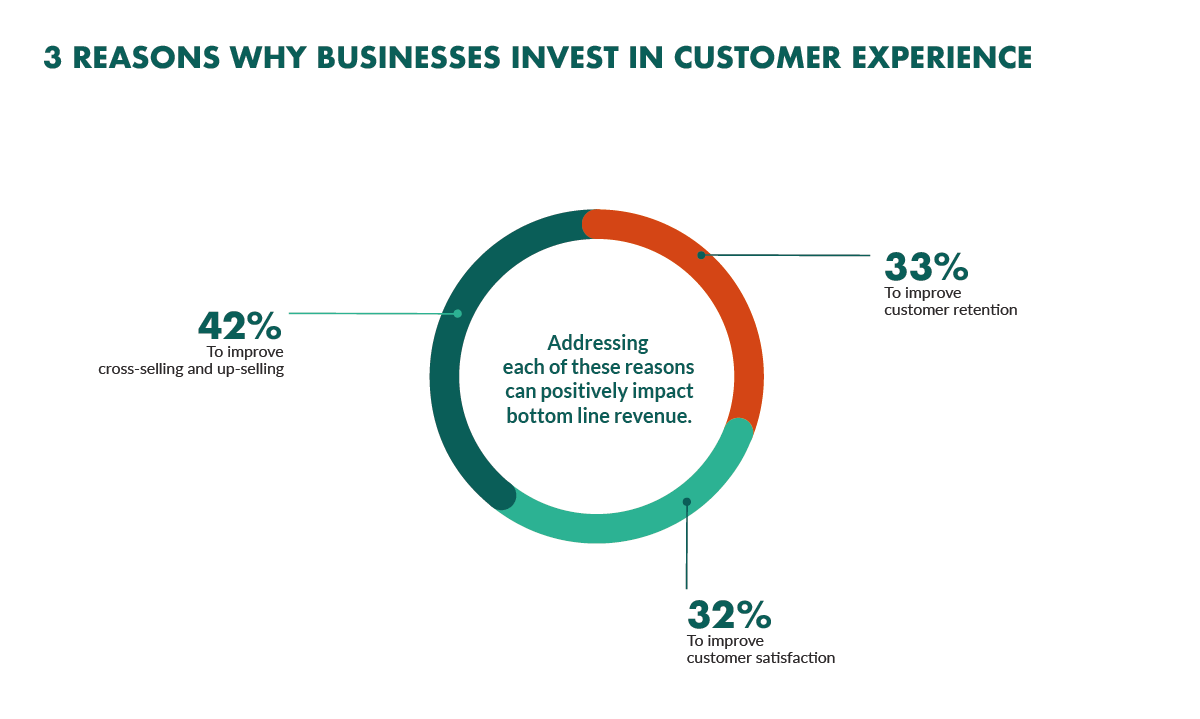
A survey revealed that 78% of customers have backed out of an intended purchase because of a bad customer experience.
This means that every positive customer interaction is an opportunity for companies to up-sell or cross-sell other products & services. If businesses offer a great customer service experience, then they are more likely to retain their existing clientele.
Let’s look at some more benefits of good customer service.
1. Improves Brand Reputation
Your business reputation is important. Customers are only willing to buy your product or use your service if you have built a good reputation in the market.
Your customer service team can help you manage your brand perception — since they’re at the front of every customer interaction, they influence how your brand image is perceived.
Happy customers are also more likely to leave positive reviews, attract new customers, and advocate for your business. Not only does this help you save on advertising costs, it also lends credibility to your company.
2. Increases Retention Rate
As a business, you want to keep your revenue stable. Good customer service is essential to customer retention because almost 75% of people would continue business with a company that offers quality customer service.
Since customer acquisition is more expensive than customer retention, it’s within all businesses’ best interest that they keep their clients happy.
3. Improves Customer Lifetime Value
Customer lifetime value is referred to as the amount of revenue a business can potentially expect from a single customer account throughout their engagement. The more engagement with your customer, the higher the value.
Here are a few statistics that support that statement: engaged customers buy 90% more frequently and are also likely to spend at least 60% more.
4. Increases Revenue
When customers feel heard and appreciated, they’re likely to pay more to ensure that they get the same level of treatment. 84% of organizations saw an increase in revenue when they started improving their customer service.
A frictionless customer service experience is the key to getting new customers and retaining your existing ones. If your support team has consistently demonstrated their problem-solving capabilities, many customers would be willing to pay extra for a product that offers them premium support.
Read more: Customer Service Strategy — 9 Lessons from Digital Disruptors
What Are Customer Service Skills?
Now that we’ve understood the benefits of investing in a good customer service strategy, let’s take a look at customer service skills that can get results.
Being a competent customer service rep requires more than just people skills. You also have to be knowledgeable about the minutiae of every product on offer.
The term ‘customer service skills’ refers to the set of traits that are necessary for successful customer interactions.
Great customer service is the holy grail of business. Providing seamless service is not an easy task. It requires a certain set of traits and characteristics that can help you deliver on your customer expectations.
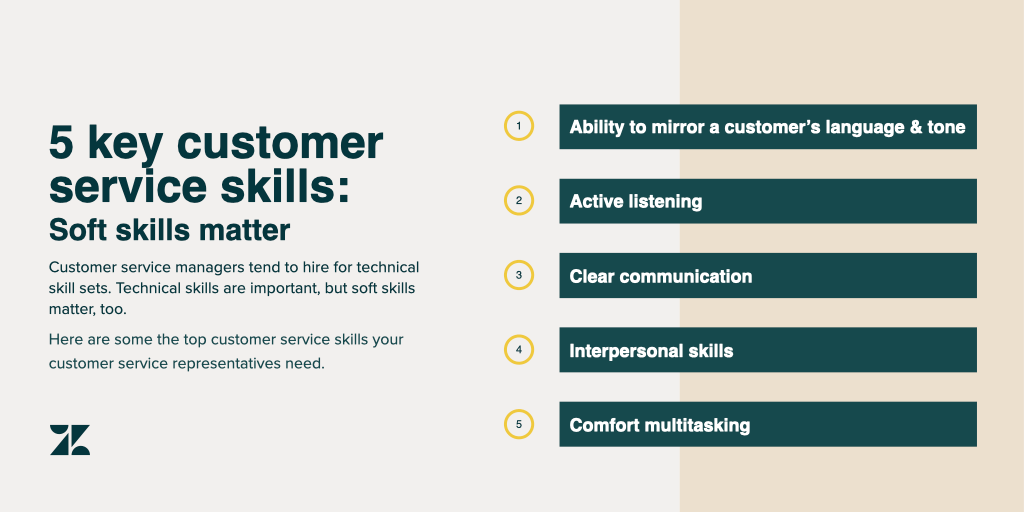
Here are some of the advanced customer service skills that every business needs to invest in.
Communication Skills
This is a no-brainer. You can’t solve a customer’s problem if you don’t know how to communicate a solution, clearly and concisely. Any type of miscommunication can negatively impact your business reputation.
Having excellent communication skills and interpersonal skills ensures that you have clearly stated what you are offering and what your customers should expect. If needed, you can use Axonify to train your frontline employees and get their knowledge and behavior in line with your business goals.
This is even more important for a more technical product. You should be able to simplify complex jargon and explain it to your customer.
It’s not enough that customer service agents know how to communicate verbally, they should also be able to adapt to digital communication. Very few customers will call; many of them will use chatbots, social media, or email.
In such cases, it helps to have a cache of predetermined responses. EngageBay, for example, allows you to create canned responses to frequently asked questions.
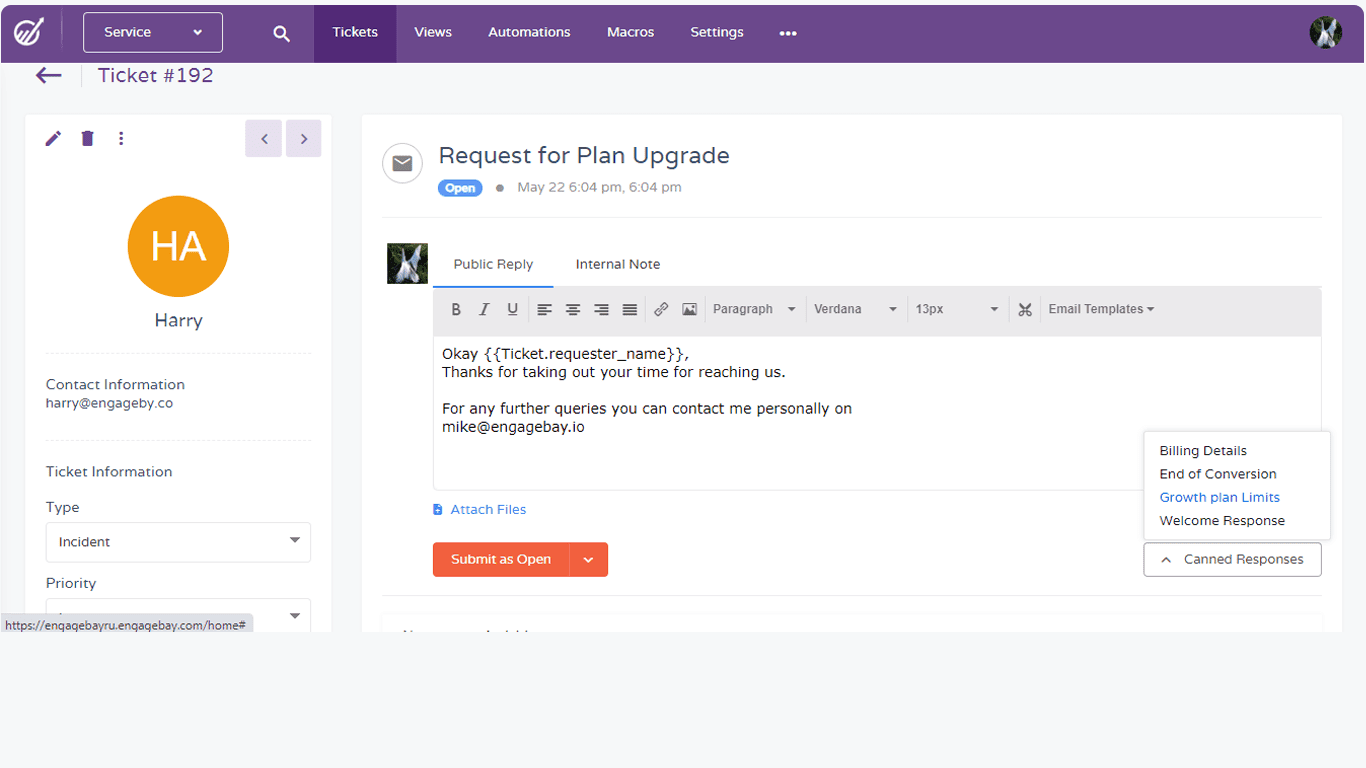
Product Knowledge
This might sound obvious, but a customer service professional must be well-versed with the technical know-how of every product in the line-up.
Regular training should be conducted to keep all your customer service reps in the loop about every product update and any product changes that will affect customers.
Using a skills tracking software can help monitor employee competencies, identify skill gaps, and ensure your team stays aligned with business goals.
An enterprise LMS can further streamline training delivery, centralize learning resources, and provide detailed insights into employee progress, especially when implemented as a LMS for law firms tailored to legal industry workflows.
You don’t want to have to keep transferring a call because your customer service reps aren’t knowledgeable enough about a product.
In case of advanced queries, your service agents must know which customer service manager to turn to when they need additional information while on a call.

Patience
Most customers reach out to customer service when they are already angry or frustrated. They might not be able to clearly communicate the problem they are facing.
The ability to stay calm and understand their problems will help ease the tension with angry customers.

Having patience enables you to listen to them carefully and pick out the customer complaints they are trying to resolve. It will ensure that you have entirely resolved the problem and not just a part of it.
Problem Solving Skills
Problem-solving is what customer support is all about.
Often, customers try to self-diagnose the problems they’re facing before they reach out to a customer service representative. In these cases, customer service professionals must be proactive.
They have to figure out the issue, navigate the solution, and go the extra mile to anticipate what the customer was aiming to resolve.
In some cases, experienced customer service agents can predict what other problems a customer may face, and offer solutions in advance.
Problem-solving, as a customer service skill, also includes checking whether the solution actually worked for the customer.
If a solution has not worked, a good customer service agent will have the patience to go back to the beginning and come up with other ways to solve the problem.
Positive Language
Simply put, the positive language in customer service is telling what you can do for them rather than what you can’t.
Do not talk like this: “I’m sorry the product is out of stock, and it won’t be back for two weeks.”
Instead, offer a solution: “The product will be back in the store in two weeks, and I’ll notify you as soon as it comes back.”
Note the difference between the two.
When delivering the bad news, you might want to blurt out things in trying to be honest. But there are better ways to do it.
Experienced customer service managers train their teams to use positive language even when the situation is sticky.
Listening Skills
Listening, in the context of customer service, means reading and understanding what a customer is trying to convey in a call or online emails/messages. This could be hard as you have no body language to help you.
Effective listening is much more than hearing what the customer is saying. It also involves decoding what they are not saying.
For instance, customers may call to ask for a particular product on a website that they are not able to locate. You can point them in the right direction.
But that solves only a temporary problem. Unless the business invests in a better website to make navigation easy for all customers, the customer service teams will continue to be busy answering calls and queries about something simple.
Time Management Skills
When you’re working on the clock, you can’t dedicate unlimited time to each customer. Knowing how to manage your time so you can avoid wasting theirs is a very important customer service skill.
A customer service representative needs to be quick in attending to the customers.
Using customer service software can come in handy as it can help with quick response times, autoresponders, Live Chat, a Help Desk or knowledge base for self-help, and even a 360-degree view of each customer query.
Time management skills allow customer service reps to maximize their productivity by dividing their time smartly and prioritizing tasks efficiently.

How to Improve Your Customer Service Skills?
US companies lose $62 billion a year due to bad customer support.
Fortunately, there are many customer service qualities that can be learned and refined with time and practice.
Below are a few tips that will help you provide the best-in-class customer service and nurture customer loyalty.
1. Measure and Analyze Your Customer Feedback
One of the best ways to understand if your customer service is working or not is by asking your customers.
You can ask them to leave feedback or take a survey to track top customer service metrics.
Ask questions like:
- Were you happy with the service?
- How knowledgeable would you say our customer service agent was?
This will help you understand what is working for your business and what is not. You can then focus on specific customer service skills that need improvement.
2. Practice Active Listening
When your customer calls you, they need to know that they are being heard and understood.
While making a conversation, focus on the speaker and what they are trying to say.
After the customer is done speaking, ask clarifying questions or paraphrase what they said to confirm that you’ve understood them correctly.
Practicing active listening will help you become a truly exceptional customer service agent.
3. Be Comfortable With Multitasking
Many companies are adopting an omnichannel customer service strategy. Customer service reps are now expected to handle queries across multiple channels.

This makes learning multitasking an essential customer service skill.
One agent could be dealing with 2-3 customers at a time. While an organizational tool (such as a CRM system) can help streamline and prioritize customers, you still want to make sure that you handle all queries diligently.
How A CRM Helps Enhance Customer Service Skills
In today’s digital landscape, there are ways to implement technology and digital solutions to streamline the process of customer service.
You can use a CRM tool as a starting point to help you provide a high-quality experience — to your customers and employees both.
Customer Relationship Management (CRM) Tool
A CRM tool helps manage a company’s relationships and interactions with customers.
Customer Relationship Management refers to the strategies, practices, and technologies that enable organizations to manage customer data throughout the customer lifecycle with the goal of improving customer satisfaction and customer retention.
You can use a CRM software as a reporting tool to manage and analyze customer feedback, measure results, and brainstorm ideas — all on a common, interactive dashboard.
Additionally, a customer relationship management platform will also help you streamline internal processes such as task assignment, project management, and using analytics to make business decisions.
Help Desk Software & Ticketing
A helpdesk is a tool that helps businesses respond to customers more quickly and effectively. It streamlines all the conversations between your business and customers from across various touchpoints into a unified platform.
Ticketing is basically cataloging customer issues into categories and routing them to the appropriate team, such as sales or support.
It ensures dedicated support for every individual, enriching their overall experience.
An integrated help desk and ticketing software can give your customers a common forum to post their queries and doubts, and help your customer support team solve those queries effectively.
Creation of Canned Responses
The support team can create a batch of canned responses for frequently asked questions, and it can be accessed by every team member while responding to tickets anytime.
It reduces response time and ensures accurate answers as well.
Smart Workflows
Automation helps you save time by creating smart workflows.
You can automatically assign tasks and prioritize queries based on certain triggers.
Smart workflows aim to save time that’s otherwise wasted on routine tasks. It allows you to focus on higher-value tasks by defining priorities.
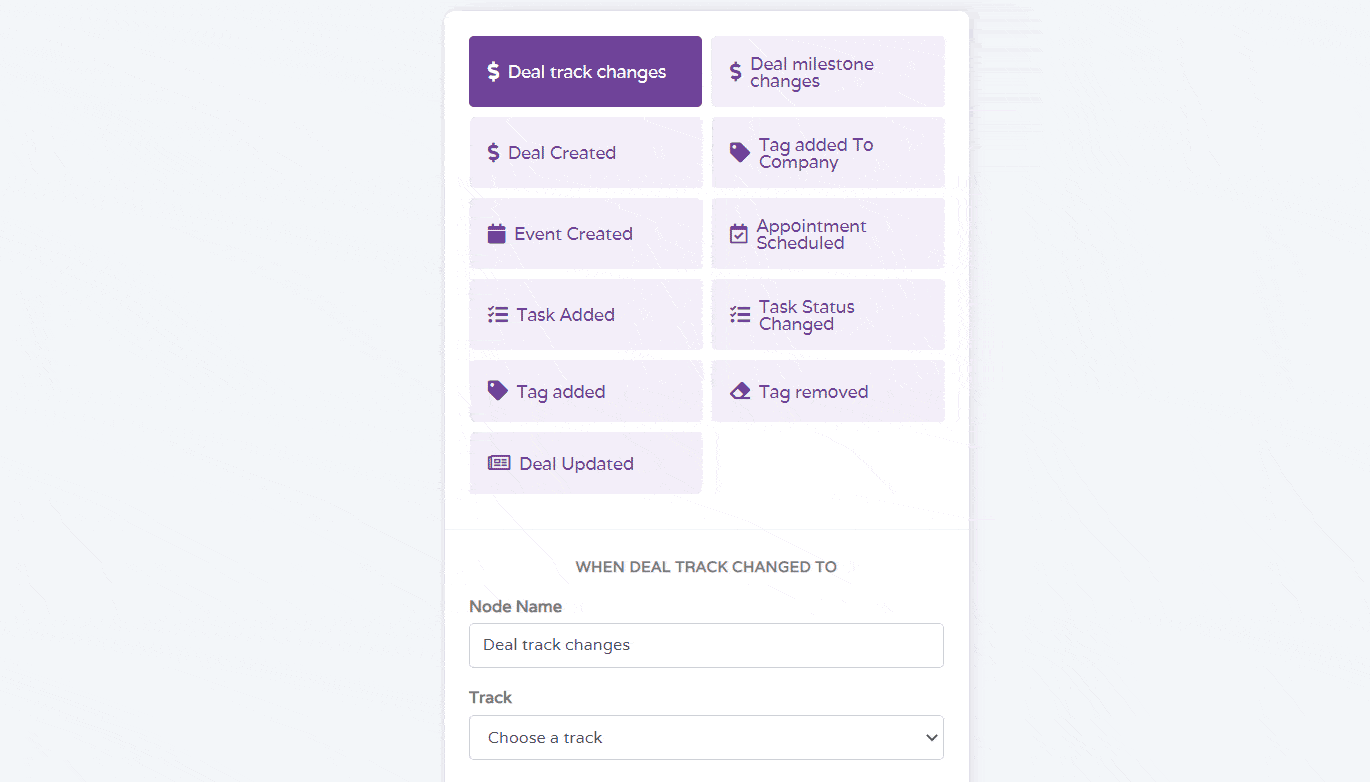
Shared Inbox
As a team, you want to avoid getting stuck in reply loops and multiple email threads. Lots of pertinent information falls through the cracks and it ends up costing you time and resources.
A shared inbox helps you keep track of all your conversations in one place.
A shared inbox will enable you to track conversation history, update data in real-time, avoid duplicate replies, and delegate tasks more efficiently.
Read more: CRM Experience — How Customer Satisfaction Tools Get Business Success
Wrap Up
The future of customer service is all about elevating the buying experience.
If you invest in empowering your support teams with the core customer service skills, you increase the chances of growing your bottom line and your revenues.
Your employees are an important part too — since they drive the customer service experience, it’s important to provide effective customer service training to help them. You want to ensure that their needs are understood and met too.
Remember that great customer service is not an add-on, it’s a must-have.
But without the right customer support tools, it can be tough to navigate the ups and downs. Get started with EngageBay today, and transform your customer service strategy.
